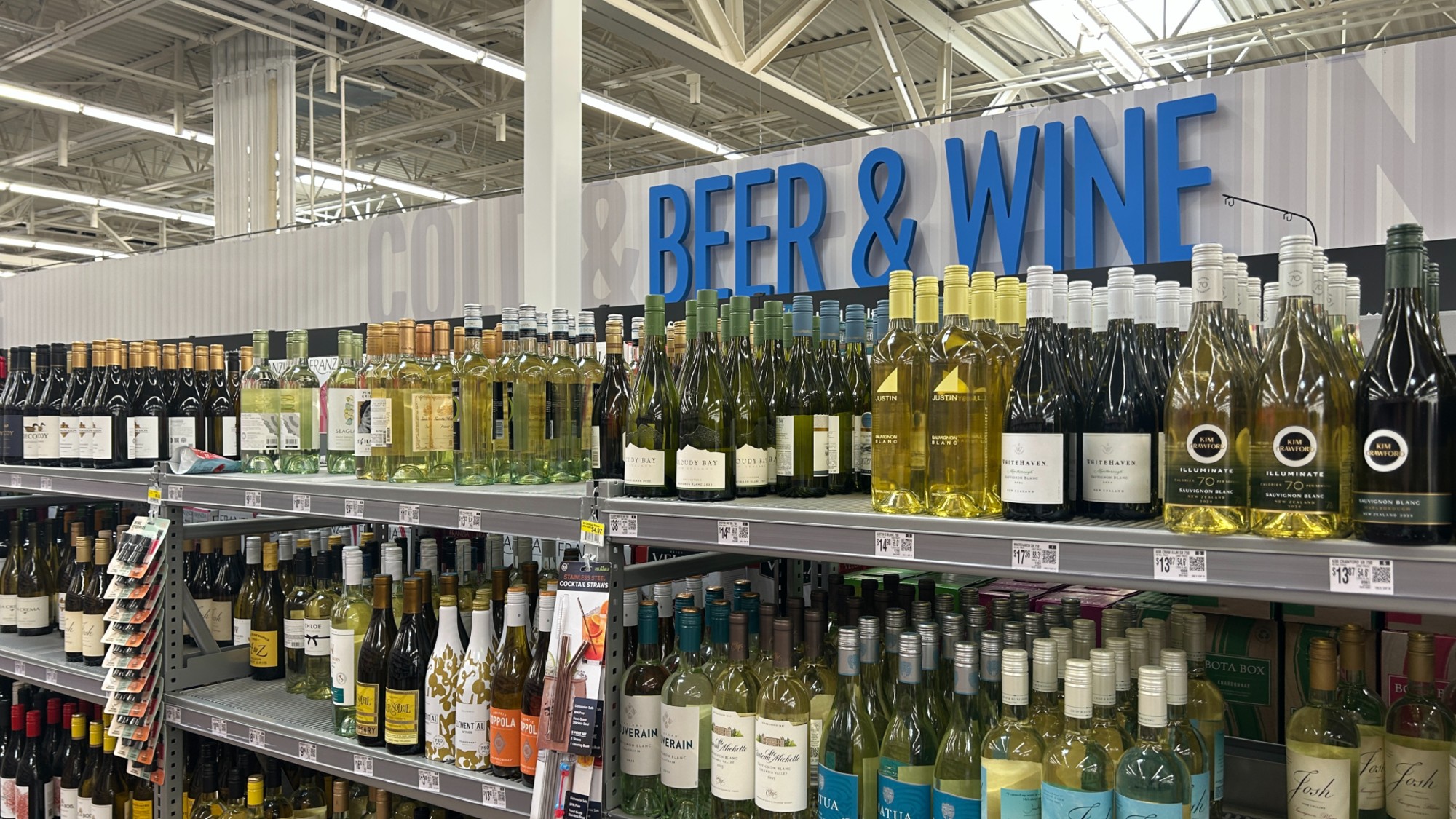Why you should think twice before using a debit card
When it comes to fraud protection, debit cards can leave you high and dry
"Credit or debit?"
It's a common question to field at the cash register, but that doesn't make it an inconsequential one. Because for all of credit and debit cards' surface similarities — your debit card may even have a Visa or MasterCard logo emblazoned on it — there are big differences between the two methods of payment. And many of us would be wise to ditch our bank debit cards altogether. Here's why:
1. Debit cards are tied directly to your checking account.
The Week
Escape your echo chamber. Get the facts behind the news, plus analysis from multiple perspectives.

Sign up for The Week's Free Newsletters
From our morning news briefing to a weekly Good News Newsletter, get the best of The Week delivered directly to your inbox.
From our morning news briefing to a weekly Good News Newsletter, get the best of The Week delivered directly to your inbox.
This means that a thief who accesses your account has the potential to drain it in real time. Maybe even all of it. Fraudulent credit card charges, while a frustration, don't carry that same threat: They can be spotted on a monthly statement, disputed, and resolved — all without your having to pay an actual bill. That extra layer provides enormous protection.
Keep in mind, too, that thieves don't need to steal your actual debit card to do damage. If you use it to buy something online or to pay for an online subscription service like Netflix, your information can be hacked just like a credit card. Debit cards also often fall prey to skimming: Using a device installed surreptitiously on an ATM to capture account data from the card's magnetic strip; hidden cameras can even record PIN numbers as they are entered. The newer chip cards are meant to help guard against this, but many ATMs — especially independently owned machines in shopping centers, convenience stores, and restaurants — have yet to transition to this technology.
2. Debit cards offer less protection.
With credit cards, federal law caps your loss at a maximum of $50 if your card is lost or stolen and many major credit card issuers offer zero liability. The rules surrounding debit cards, however, are less supportive. If you alert your bank that your card is missing within two days of learning about its loss, theft, or fraudulent use, then yes, you're granted that same $50 ceiling. But report your concerns after that — all the way up to 60 days — and you may be liable for up to $500. After 60 days? All bets are off, and you risk being responsible for all of the charges.
A free daily email with the biggest news stories of the day – and the best features from TheWeek.com
If you suspect someone is using your debit card number to make purchases, but still have the card, you have a flat 60 days from the date of the statement on which the fraudulent transaction appears to report the loss to the bank — with no liability to you. Some banks offer zero liability protection on debit accounts, but that can come with caveats (such as reporting time frames like the ones mentioned above). Check with your institution to understand its policy.
3. Debit card fraud has a domino effect.
Remember how debit cards are tied directly to your checking account? Well, not only is any money that's stolen actually gone, it might not be returned until your bank finishes its investigation, a process that can take weeks. The situation could well leave you with a shortfall, unable to make important payments like rent, mortgage, car loans, and insurance premiums. (Sometimes banks will provide provisional credit, but that can take time, too.)
4. You have to balance your books.
Using a debit card is akin to plunking down cash or paying with a personal check, which means what you can buy is limited by how much money your account contains at that given moment. Maybe you're hawkish about record-keeping and know your daily balance to the penny — in which case, feel free to skip to the next reason. But many of us don't note every latte or lunchtime sandwich purchased — nor do we have the discipline to develop that kind of tracking into a lasting habit. The upshot? It's easy to lose sight of your balance, overdraft the account, and incur fees.
5. Rewards, rewards, rewards.
From 3 percent cash back on grocery purchases to points toward hotel deals that can be used on your next vacation, credit cards offer a range of rewards programs — and the ones being rolled out these days are the most lavish in years. With debit cards, while rewards programs are not unheard of, they are harder to find and less generous.
6. You're not building a credit history.
Want to apply for a car loan or secure a mortgage? A long and positive credit history, which in turn will boost your credit score, can only help — and you're not building one if you're always swiping a debit card. Here's where a caveat comes in: If using a debit card keeps your spending in check and prevents you from running up credit card balances that you can't pay off from one month to the next, then by all means, use it.
Editor's note: This article originally slightly misstated the rules surrounding debit card protections. It has since been corrected. We regret the error.
Alexis Boncy is special projects editor for The Week and TheWeek.com. Previously she was the managing editor for the alumni magazine Columbia College Today. She has an M.F.A. from Columbia University's School of the Arts and a B.A. from the University of Virginia.
-
 Why is the Pentagon taking over the military’s independent newspaper?
Why is the Pentagon taking over the military’s independent newspaper?Today’s Big Question Stars and Stripes is published by the Defense Department but is editorially independent
-
 How Mars influences Earth’s climate
How Mars influences Earth’s climateThe explainer A pull in the right direction
-
 ‘The science is clear’
‘The science is clear’Instant Opinion Opinion, comment and editorials of the day
-
 The pros and cons of noncompete agreements
The pros and cons of noncompete agreementsThe Explainer The FTC wants to ban companies from binding their employees with noncompete agreements. Who would this benefit, and who would it hurt?
-
 What experts are saying about the economy's surprise contraction
What experts are saying about the economy's surprise contractionThe Explainer The sharpest opinions on the debate from around the web
-
 The death of cities was greatly exaggerated
The death of cities was greatly exaggeratedThe Explainer Why the pandemic predictions about urban flight were wrong
-
 The housing crisis is here
The housing crisis is hereThe Explainer As the pandemic takes its toll, renters face eviction even as buyers are bidding higher
-
 How to be an ally to marginalized coworkers
How to be an ally to marginalized coworkersThe Explainer Show up for your colleagues by showing that you see them and their struggles
-
 What the stock market knows
What the stock market knowsThe Explainer Publicly traded companies are going to wallop small businesses
-
 Can the government save small businesses?
Can the government save small businesses?The Explainer Many are fighting for a fair share of the coronavirus rescue package
-
 How the oil crash could turn into a much bigger economic shock
How the oil crash could turn into a much bigger economic shockThe Explainer This could be a huge problem for the entire economy